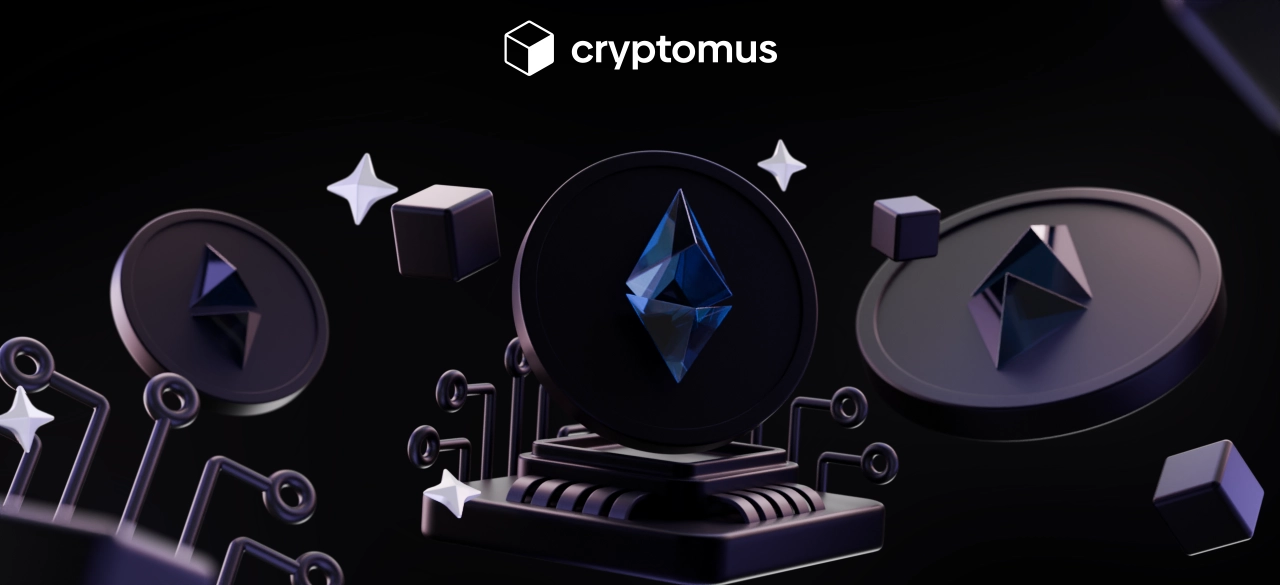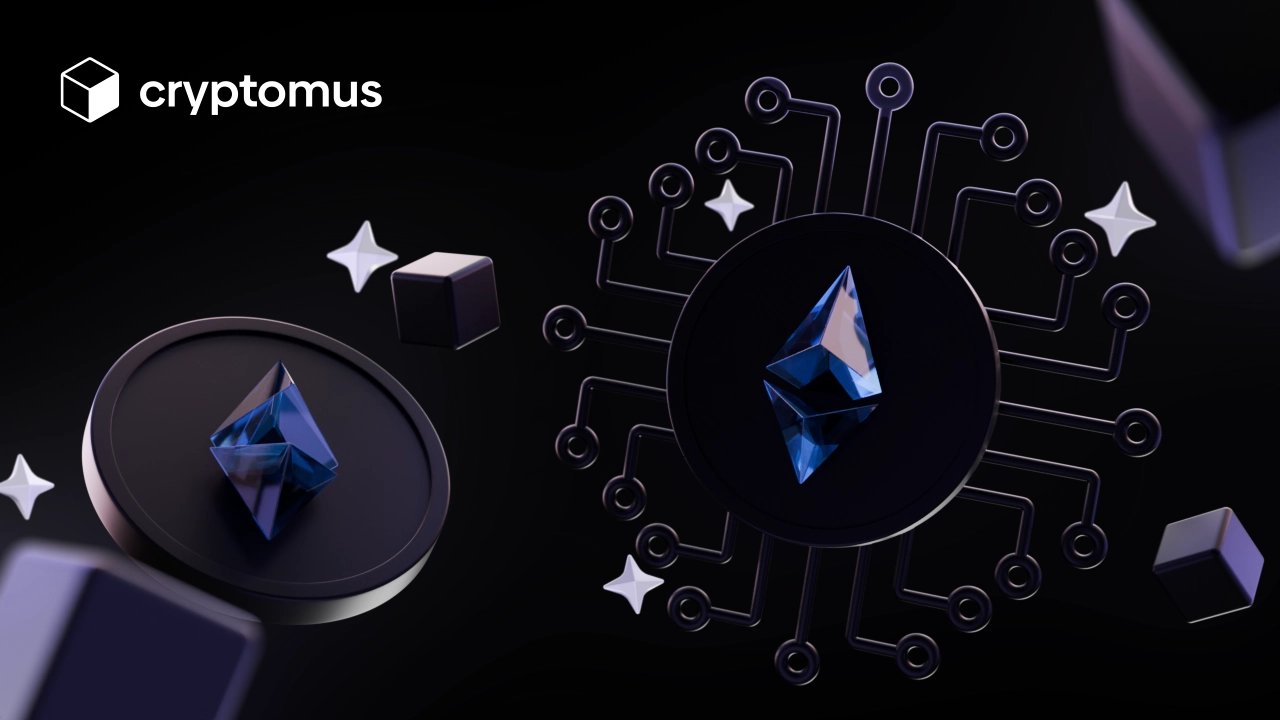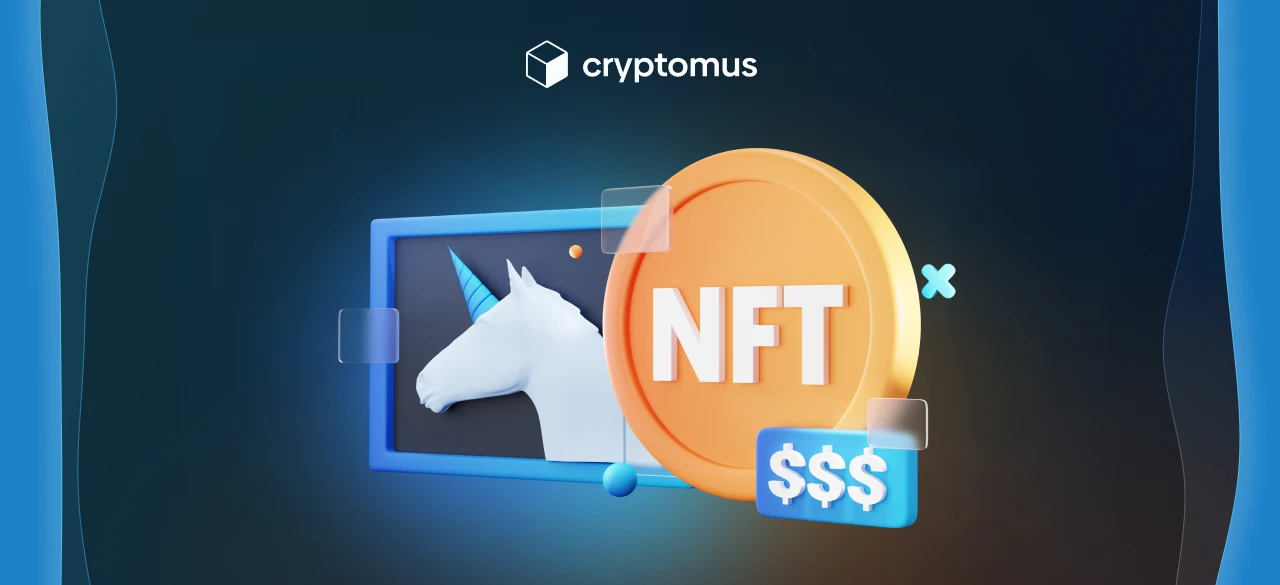
What is Ethereum (ETH) and How It Works
Table of Contents
Ethereum (ETH) is a major player in the crypto world. Its potential piques the interest of developers and investors.
Is Ethereum a concept that interests you? Today, we'll uncover the story behind Ethereum, explore its functionality, and use cases.
History of Ethereum
To have a full understanding of any crypto asset, start with its roots. To learn what Ethereum is, let's review some crucial points from its history.
The Creation of Ethereum
Ethereum was founded by Vitalik Buterin, a Russian-Canadian programmer. While others contributed significantly to its development, Buterin's original concept and continued efforts make him the most well-known individual linked with Ethereum. He pictured it as a network for running apps and automating agreements via smart contracts.
The concept of Ethereum emerged in 2013, and its development began in 2014 via crowdfunding. By July 2015, the Ethereum network became operational.
The Merge
Ethereum initially used a Proof-of-Work mechanism, but with a major update known as the Merge, it transitioned to a Proof-of-Stake one. Ethereum officially switched to Proof-of-Stake in 2022 to increase network security and efficiency.
What is Ethereum?
Nowadays, Ethereum is one of the most popular blockchain networks. Ethereum is decentralized so it operates without a central authority. Ethereum features a native token called Ether. It is highly important for the network and serves the following purposes:
- Transaction Fees: Users pay with ETH to make transactions, run smart contracts, and evolve dApps.
- Security: Validators get extra ETH by validating transactions and securing the network.
Ethereum is an open-source project, so anyone can contribute and use the network. Moreover, Ethereum forms a peer-to-peer network for safe transactions, smart contract execution, and dApp creation.
The Difference Between Bitcoin And Ethereum
Although Bitcoin and Ethereum are both major players in the crypto sphere, they have distinct purposes and functionalities. Bitcoin is the so-called “king of crypto” and it was designed as an alternative to traditional currencies. The main purpose of BTC is to become a medium of exchange and a store of value.
Ethereum is an altcoin, and it’s one of the main alternatives to Bitcoin. It’s the second crypto by market cap and the closest competitor to BTC in popularity. Ethereum goes beyond digital payments, it’s a programmable blockchain for dApps and smart contracts.
This article provides a more in-depth look at the differences between Bitcoin and Ethereum.
How Does Ethereum Work?
The Ethereum ecosystem is a vast network founded on the Ethereum blockchain. This ecosystem is ever-evolving, drawing millions of users with billions of crypto investments.
The Ethereum network fundamentally operates upon:
- Blockchain: It’s a gigantic public ledger containing every transaction made via the crypto networks. Since it is copied in hundreds of computers, it is incredibly secure and tamper-resistant.
- Smart Contracts: These are blockchain-based programs that run under predetermined settings. No intermediary is needed, which increases transaction speed, and makes them less expensive and very secure.
- Staking: Ethereum deploys a Proof-of-Stake (PoS) system. Thus, ETH owners may stake it to help validate transactions and get rewards, making the network safer.

Ethereum’s Unique Features
Ethereum has numerous distinctive features that have made it popular. These features are:
- Smart Contracts: They may be used for various purposes from automating transactions to even building games. And due to the lack of intermediaries, they save money and time.
- Ethereum Virtual Machine: It's a virtual computer on the Ethereum network. Since it is Turing-complete, any program might potentially be executed on it. For developers, it allows the creation of extremely complex blockchain-oriented apps.
- dApps: These are not controlled by a single entity, hence they are immune to censorship and downtime. dApps have several application ways, including DeFi, gaming, social media, etc.
- Decentralized Autonomous Organizations: DAOs are communities that obey the rules pre-set in smart contracts. As a result, they have no single leader, making decisions significantly more open and democratic. Such organizations are a new way for people to organize and work together on the blockchain. They allow users to hold tokens that give voting rights on proposals and the direction of the DAO.
Is Ethereum A Good Investment?
As with any other crypto, the price of Ethereum can fluctuate. It depends on various factors, and we’ve covered them in this article. One of these factors is the so-called whales. Whales in Ethereum are users with a significant amount of tokens that might influence the price change. Whales play a major role in changing Ethereum market dynamics.
Ethereum is valuable due to the enormous investment demand that drives up its price. It also has a large community that continues to grow, increasing the adoption of the token. Plus, it's a leading network and crypto platform for DeFi, which attracts users interested in this market.
The current supply of Ethereum is 120.15M tokens. Apart from Bitcoin, Ethereum does not have a supply cap, so this fact boosts its widespread adoption.
However, issuance is programmed to decrease over time, leading to deflationary pressure on its price. Ethereum was deflationary following the Merge due to fee burning, but it then turned inflationary again. The latest Dencun upgrade changed fee mechanisms, lowering the burn rate and allowing new supplies to outweigh burned fees.
How Can You Use Ethereum?
Ethereum has a multitude of use cases. You may use it to make payments or to exchange for other tokens. Another way is to use it to make a savings account and yield interest by staking ETH tokens.
Surely, you will need an Ethereum wallet to manage your tokens and interact with the network. Cryptomus is a great wallet choice, and you can get started with it by completing these steps:
- Create a New Account
- Verify Your Account
- Deposit Funds
- Buy ETH tokens
- Start Trading or Store Your Tokens
That’s it! We’ve explored everything you should know about Ethereum. However, Ethereum is continuously evolving to solve scalability and efficiency challenges, so keep up with the latest crypto news.
Hopefully, we’ve helped you to understand Ethereum. Share your thoughts below and reach out if you have any questions. Let's discuss the future of Ethereum together!
Simplify Your Crypto Journey
Want to store, send, accept, stake, or trade cryptocurrencies? With Cryptomus it's all possible — sign up and manage your cryptocurrency funds with our handy tools.
Get Started









